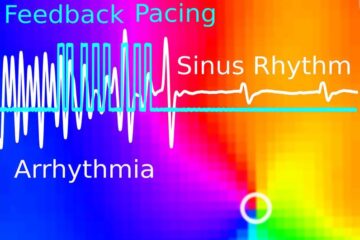ERC-Consolidator Grant Awarded to Biochemist and Protein Crystallographer Professor Oliver Daumke

Biochemist and protein crystallographer Professor Oliver Daumke of the Max Delbrück Center (MDC) Berlin-Buch and Freie Universität (FU) Berlin has been awarded one of the highly sought-after European Research Council (ERC) grants.
During the next five years he will receive funding through a Consolidator Grant endowed with 2 million euros, the ERC in Brussels announced. These grants are awarded to researchers in the physical, engineering and life sciences, humanities and social sciences with over seven and up to 12 years of experience since completion of the PhD degree. For 2014, 312 top researchers have been awarded a prestigious ERC Consolidator Grant out of a total of 3 600 applicants.
Professor Daumke investigates the structure and function of proteins which bind to cellular membranes and are involved in the remodeling of their shape. These proteins play a key role in the development of many diseases, such as cancer, diabetes or infections.
With the ERC funding, Daumke plans to investigate the mitochondria, which mediate energy production of the cell, and intends to focus his research on their internal structure and dynamics. Not only do the mitochondria play an important role in cell metabolism, but also in apoptosis, a program of the body to eliminate excess or damaged cells.
From the study of these important cell organelles, Daumke hopes to gain a precise molecular understanding of mitochondria-based diseases. These include cancer and many neurodegenerative diseases.
The 39-year-old researcher came to the MDC as Helmholtz Junior Researcher in 2007 from the Laboratory for Molecular Biology in Cambridge, UK. In September 2010 he became a junior professor at the Institute of Medical Physics and Biophysics, Charité – Universitätsmedizin Berlin, the joint medical department of Freie Universität (FU) Berlin and Humboldt-Universität zu Berlin (HU).
In September 2013 Oliver Daumke was appointed W3 Professor for Structural Biology at Freie Universität (FU) Berlin. It is a joint appointment with the MDC, a member of the Helmholtz Association.
Oliver Daumke grew up in Freiburg/Breisgau. He studied biology there, was an exchange student at the University of Sussex in Brighton (England) and then continued and completed his studies at the University of Cologne. He wrote his dissertation at the Max Planck Institute of Molecular Physiology in Dortmund under the supervision of Prof. Alfred Wittinghofer.
He has received numerous awards, including the Bayer Early Excellence in Science Award in 2010, a scholarship from the Human Frontier Science Program, the Otto Hahn Medal of the Max Planck Society and the Klaus Liebrecht Prize of the University of Cologne for the best dissertation.
Including Professor Daumke, altogether 11 MDC scientists have received one of the highly endowed ERC grants: Professor Thomas Willnow, Professor Michael Gotthardt, Dr. Zsuzsanna Izsvák, Professor Thomas Jentsch (MDC and Leibniz-Institut für Molekulare Pharmakologie, FMP), Professor Gary Lewin, Dr. Jan Siemens (now University of Heidelberg), Professor Klaus Rajewsky, Dr. Matthew Poy, Dr. James Poulet (MDC/Charité) and Dr. Francesca Spagnoli.
Contact:
Barbara Bachtler
Press Department
Max Delbrück Center for Molecular Medicine (MDC) Berlin-Buch
in the Helmholtz Association
Robert-Rössle-Straße 10
13125 Berlin
Germany
Phone: +49 (0) 30 94 06 – 38 96
Fax: +49 (0) 30 94 06 – 38 33
E-mail: presse@mdc-berlin.de
http://www.mdc-berlin.de/
Carsten Wette
Office of News and Public Affairs
Freie Universität (FU) Berlin
Kaiserwerther Straße 16 – 18
14195 Berlin
Germany
Phone: +49 (0) 30 838 731 – 89
E-mail: carsten.wette@fu-berlin.de
Media Contact
All latest news from the category: Awards Funding
Newest articles

Wildfire danger to increase due to climate change
WSL Institute for Snow and Avalanche Research (SLF) researchers expect an elevated wildfire danger in the Alpine Foreland from 2040 onwards due to changing meteorological conditions. The danger currently remains…

Advanced Brain Science Without Coding Expertise
Researchers at Helmholtz Munich and the LMU University Hospital Munich introduce DELiVR, offering a new AI-based approach to the complex task of brain cell mapping. The deep learning tool democratizes…

Gentle defibrillation for the heart
Using light pulses as a model for electrical defibrillation, Göttingen scientists developed a method to assess and modulate the heart function. The research team from the Max Planck Institute for…





















